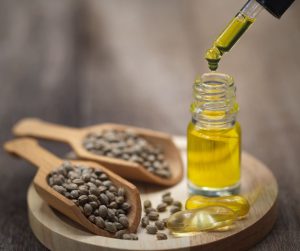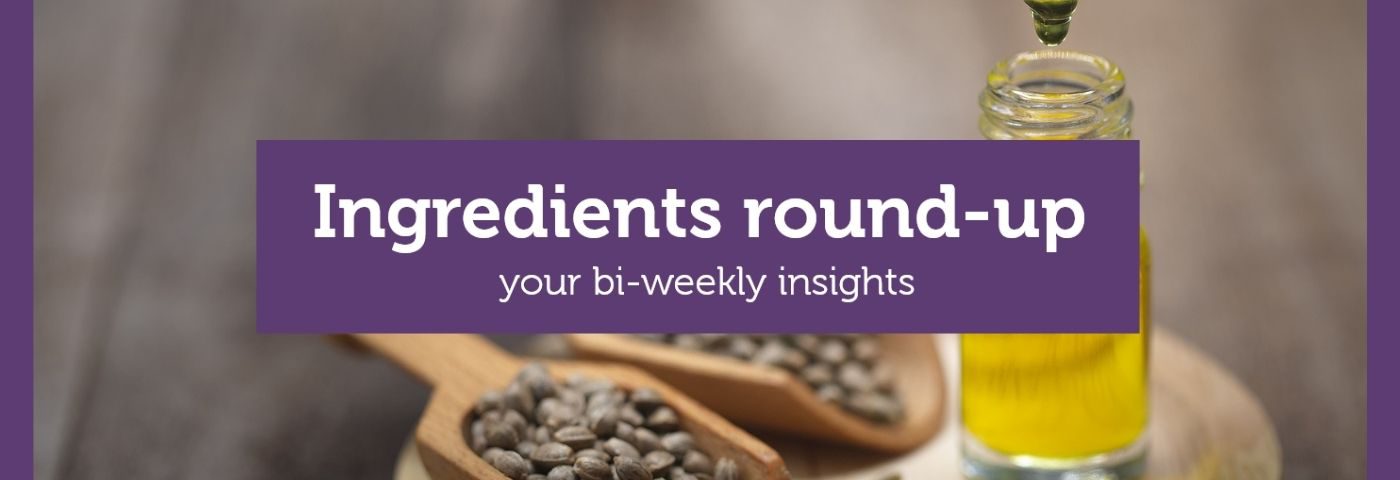Want to stay in the know when it comes to cosmetic ingredients? Delve into our bi-weekly round-up of the latest ingredients news and what that might mean for the industry.
Givaudan acquires AI player Myrissi
Givaudan says it is taking its fragrance development to the next step with the acquisition of artificial intelligence players Myrissi. Founded in 2014, Myrissi has developed a technology that is capable of translating a fragrance into colour patterns images, a technology that is both relevant to consumers and also helps to predict the end consumer’s emotional response.
This link between colours, emotions and fragrances has been modelled on research based on over 25,000 consumer tests, allowing the team at Myrissi to develop a system that echoes consumers’ marketing briefs. In recent years, one of the most crucial elements of engaging consumers in fragrance has been to connect with the consumer on an emotional level, which in turn enhances interest and even loyalty to a specific fragrance. According to fragrance developers at Givaudan, the emotional response is so important that consumers can reject specific fragrances if sensory messages are not perfectly consistent. However, when the message is correct, this can result in the signature of the fragrance and the brand identity being amplified, helping the consumer
“The acquisition of Myrissi is aligned with our long term Fragrance & Beauty strategy; their expertise in AI will support us in proposing to our customers new visual and verbal storytelling approaches to consumers,” said Maurizio Volpi, President Givaudan Fragrance & Beauty.
“This is particularly important in a time when e-commerce is booming. Our mission will be to support our customers to evoke the smell of their products in the most inspiring way, helping consumers to choose the product that best fits their preferences.”
Study confirms skin hydration effect of moringa seed oil

A new study by researchers in Thailand has shown that moringa oleifera seed oil does have skin hydration enhancing properties, combined with having a significant antioxidant impact. Researchers at the Srinakharinwirot University, Chiang Mai University and Phetchaburi Rajabhat University, conducted a study using a testing cream on 32 individuals and found that skin hydration levels increased by up to 85% over a four week period.
The tests required the individuals to apply a 0.2g dosing of moringa seed oil in a cream to the arm twice a day, alongside a control cream. Tests were then carried out once a week to determine skin hydration, erythema (redness), melanin levels and elasticity.
The research found that skin hydration increased at the end of each week that analysis was carried out, with skin hydration improving by 16% in the first week, 76% by the second week, and 77% in the third week, before reaching the 85% hydration increase in the fourth week.
The skin redness caused by erythema was also significantly reduced, with the inflammation and irritation associated with the condition clearly easing and demonstrating anti-oxidant effects. On the other hand, the tests showed no signs of having any skin lightening or brightening properties, a claim that is particularly popular for skin products marketed in the Asia Pacific region.
The skin irritation test showed that there was no significant or detectable impact on the skin, while the anti-inflammatory properties seen in the reduction of skin redness suggests that it has a soothing effect. Researchers also reported that the participants in the test said that they preferred the colour, smoothness and skin hydration effect of the moringa seed oil to the control cream, while absorption, odour and spreadability of the two were very comparable.
Colonial Chemical launches natural-based surfactant
ColaMate LA-40 is a natural-based surfactant from Colonial Chemical that is derived from lauryl alcohol.
According to the development team, it is more than 45% vegetable-derived thanks to the fact that the lauryl alcohol that forms the basis of the ingredient is of vegetable origin. ColaMate LA-40 is said to be sulfate-free, ethoxylate-free, and 1,4 dioxane-free, claims that make it ideal for a range of natural-based and sulfate-free formulations.
The development team has worked towards creating an ingredient that is very dense and provides good foaming properties when combined with a range of personal care cleansers, while also being mild on the eye and good for sensitive skin types. Of specific interest to formulators, unlike some sulfosuccinates, it is said to provide good viscosity response when formulated with other anionics and is also suitable for clear formulations.
Complying with North American, EU, Australia and China regulatory bodies, it is said to be long-lasting, have a talc-like after-feel, has a light colour with no odour and is compatible with a range of surfactants. It is suitable for a range of formulations, including shampoos, bubble baths, body washes and gels, face washes and hand soaps.
Want more ingredients insights? Find out about the latest ingredient assessment app.

